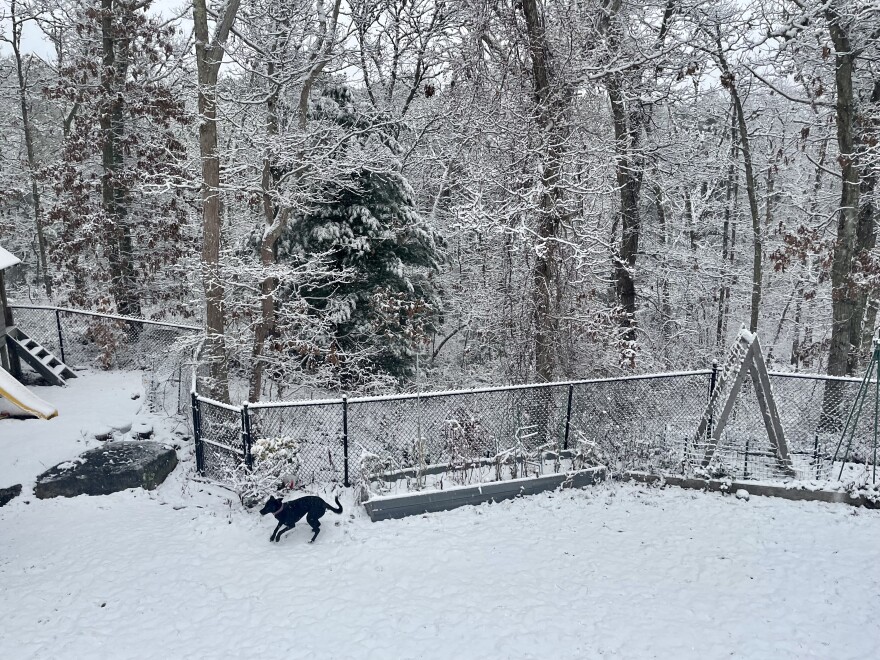“Where are the snows of yesteryear?” is the often-quoted opening line of a poem by the 15th century French poet Francois Villon. The line is actually a metaphor lamenting the death of great beautiful women of the past. But now the line seems all too literal, as snow is becoming an increasingly rare phenomenon on the Cape, a victim of global warming. As I write this, we are well into our second winter with virtually no significant snowfall. And according to my records, the last “blizzard” to hit the Cape was seven years ago.
There’s not much I can do about the increasing lack of snow, but going through my journals, I can call up snows of winters past — sort of like looking at photographs of those individuals who are no longer with us. So, since I can’t offer you real snow, I offer you this verbal snapshot of a snowfall from the winter of 1987, thirty-five years ago:
Snow, snow, snow. A white weekend: a blanket of five inches Friday night, another two or three today. It makes the local headlines: “Freak Storm Batters Cape.” It comes out through the radio and we eat it for breakfast, curse the inconvenience, and drive nails deeper into the coffins of our childhood.
Despite the histrionic headlines and Chamber of Commerce protestations, such ocean snowstorms are not “freak,” but are infrequently regular here, glazing our narrow land with white while leaving the mainland barren. I have seen satellite photos of the Cape after such a winter blow; it looks like a long, curled, ivory tusk thrusting out from the darker mainland, a horn on which many a winter’s ship has impaled itself.
There is a strong and characteristic feeling about the first snowfall of the year. It brings us into the new year with a nostalgic shock. Even on the cloudiest of days there is a glare and a brightness to it. It makes us feel slightly ill, but in a pleasantly recuperative way. We are at once more vulnerable and clothed to the open universe. It is a bit like going to heaven; everything is at once strange, yet familiar. It breaks down the enclosed present, opening us up to the white stretches of eternity.
Another four inches of soft snow fell last night, making a world of white stag antlers in the woods in the morning. Late this afternoon, in the pink pre-glow of sunset, I walk through the virgin snow of the yard and down into the kettle hole below the house. At the bottom of the bowl the maple limbs have been bowed down with snow. They dip into the black water where mushy ice is beginning to harden its bite. I am almost entirely enclosed by a dome of white, inside the shell of some fantastic, confectionary Faberge egg. Everything is as still and silent as an artificial world. There is absolutely no sound or sight of moving life other than my own. The texture of the snow-blanketed slopes is that of an electron microscope print: abstract and sharp, compressed and foreshortened, as though I beheld fundamental alien structures, related to, but not of this world or dimension. Then, partway up the hill, the silence is broken by one, small, somewhat querulous and tentative bird sound, a chirp really, as of something just hatched. It sounds like the beginning of the world.







